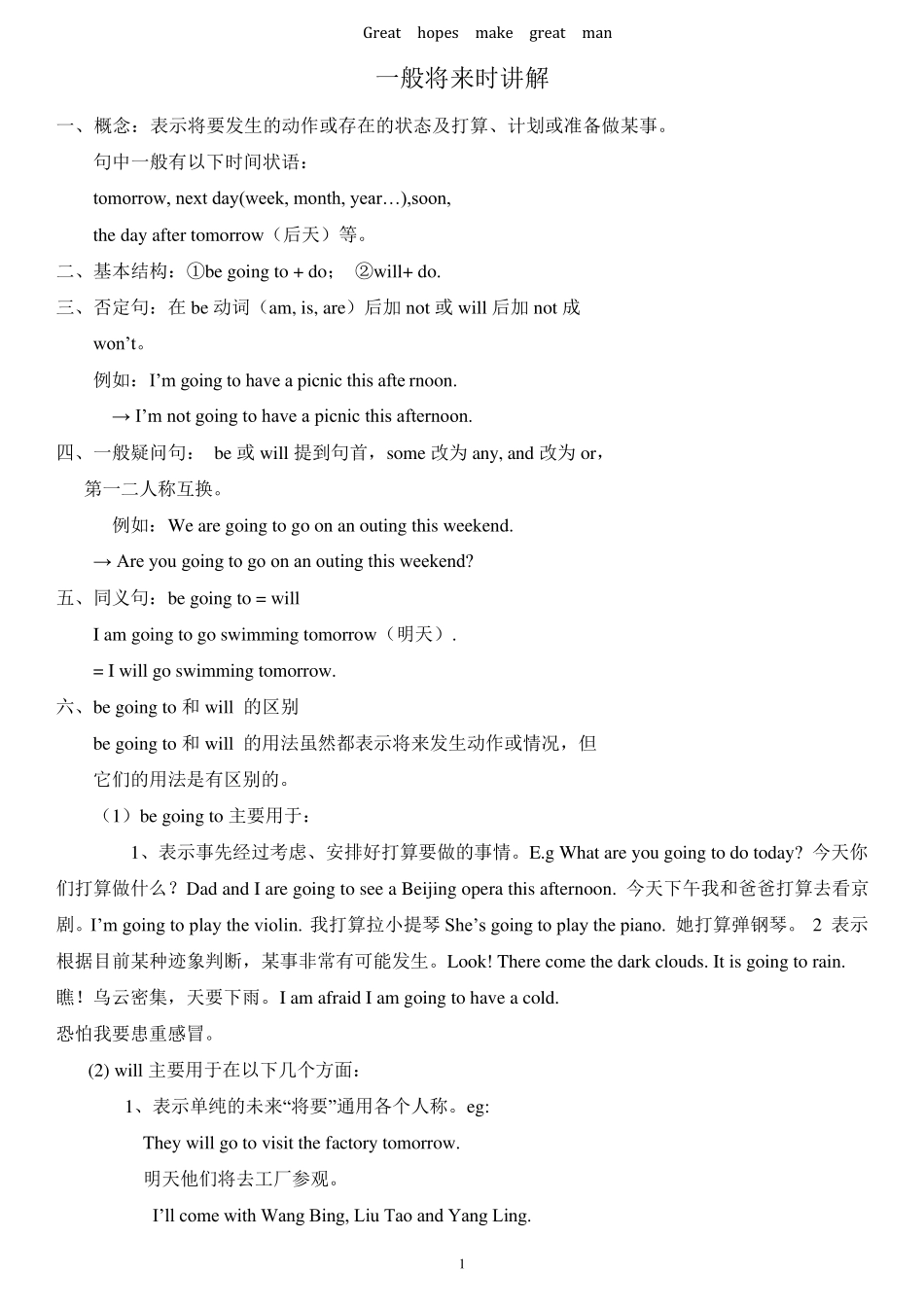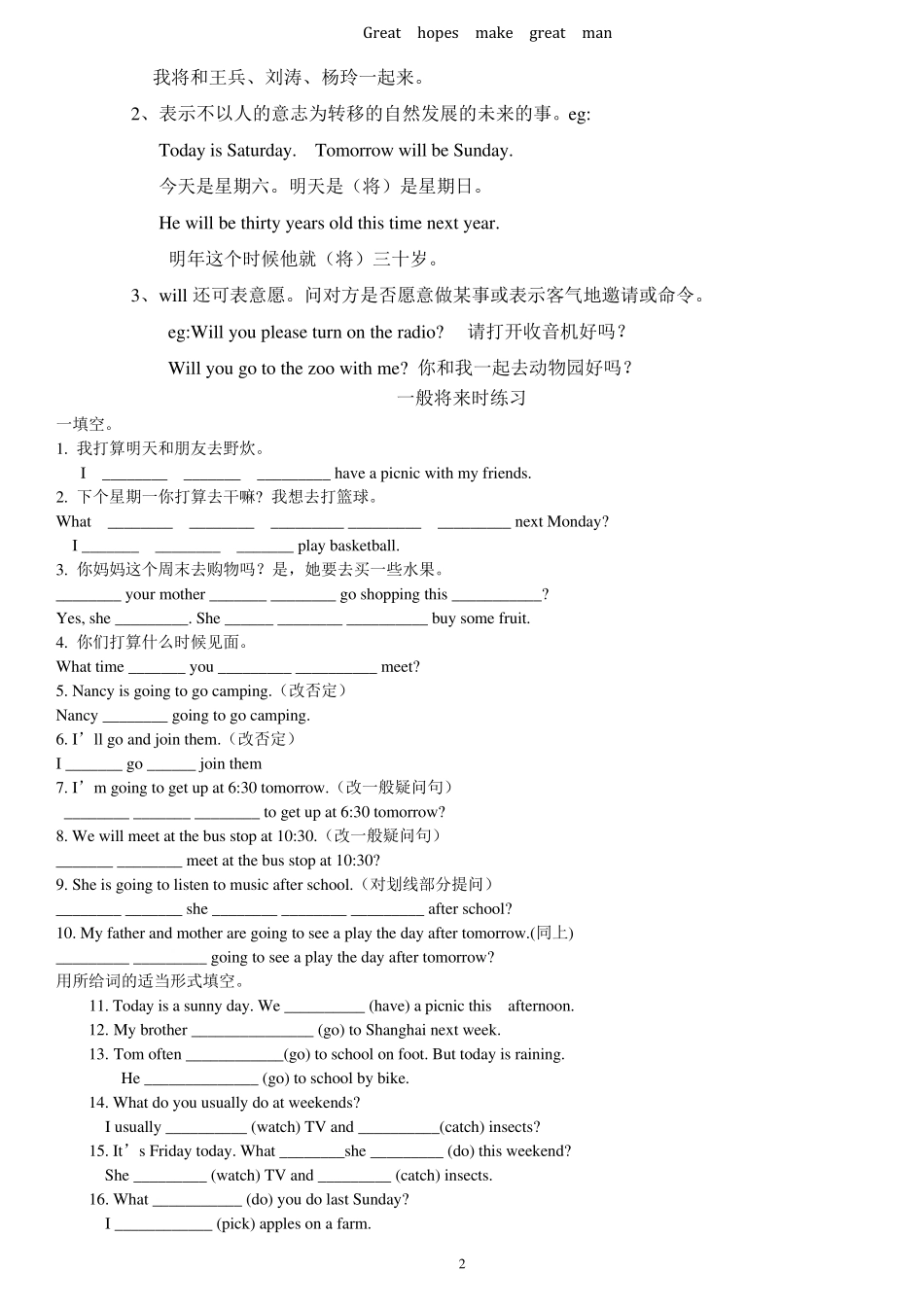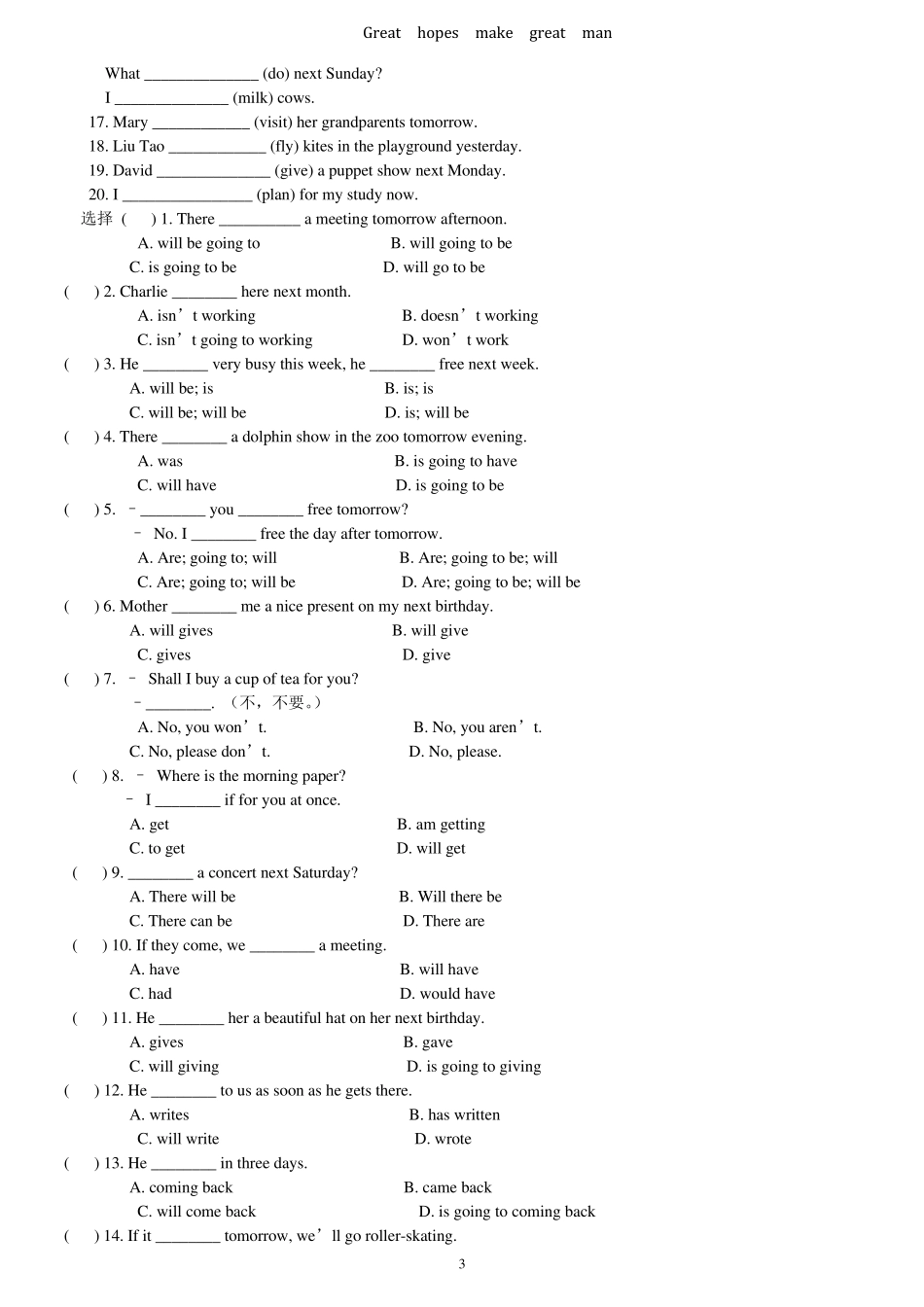Great hopes make great man 1 一般将来时讲解 一、概念:表示将要发生的动作或存在的状态及打算、计划或准备做某事。 句中一般有以下时间状语: tomorrow, next day(week, month, year…),soon, the day after tomorrow(后天)等。 二、基本结构:①be going to + do; ②will+ do. 三、否定句:在be 动词(am, is, are)后加 not 或will 后加 not 成 won’t。 例如:I’m going to have a picnic this afte rnoon. → I’m not going to have a picnic this afternoon. 四、一般疑问句: be 或will 提到句首,some 改为 any, and 改为 or, 第一二人称互换。 例如:We are going to go on an outing this weekend. → Are you going to go on an outing this weekend? 五、同义句:be going to = will I am going to go swimming tomorrow(明天). = I will go swimming tomorrow. 六、be going to 和 will 的区别 be going to 和 will 的用法虽然都表示将来发生动作或情况,但 它们的用法是有区别的。 (1)be going to 主要用于: 1、表示事先经过考虑、安排好打算要做的事情。E.g What are you going to do today? 今天你们打算做什么?Dad and I are going to see a Beijing opera this afternoon. 今天下午我和爸爸打算去看京剧。I’m going to play the violin. 我打算拉小提琴 She’s going to play the piano. 她打算弹钢琴。 2 表示根据目前某种迹象判断,某事非常有可能发生。Look! There come the dark clouds. It is going to rain. 瞧!乌云密集,天要下雨。I am afraid I am going to have a cold. 恐怕我要患重感冒。 (2) will 主要用于在以下几个方面: 1、表示单纯的未来“将要”通用各个人称。eg: They will go to visit the factory tomorrow. 明天他们将去工厂参观。 I’ll come with Wang Bing, Liu Tao and Yang Ling. Great hopes make great man 2 我将和王兵、刘涛、杨玲一起来。 2、表示不以人的意志为转移的自然发展的未来的事。eg: Today is Saturday. Tomorrow will be Sunday. 今天是星期六。明天是(将)是星期日。 He will be thirty years old this time next year....


